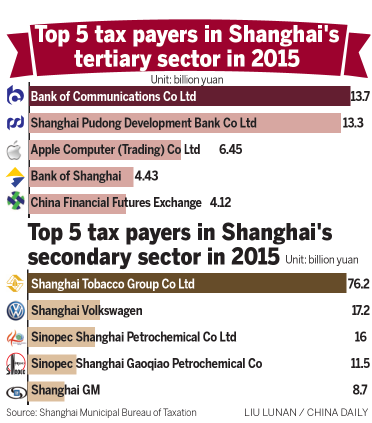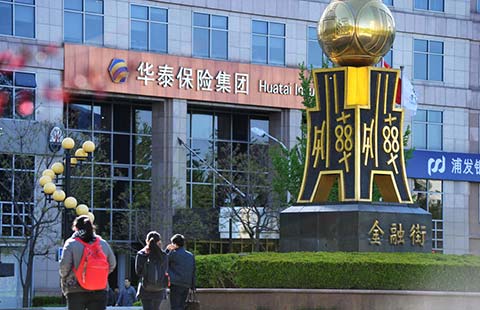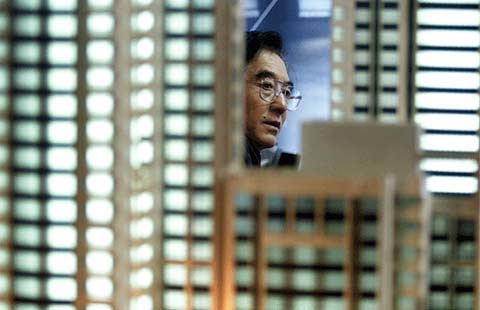China's tertiary industries lead in tax stakes
By Shi Jing In Shanghai (China Daily) Updated: 2016-01-12 08:11The gap between the tertiary and the secondary industry has widened further in the past 12 months, with the former accelerating its development pace.
According to statistics provided by the Shanghai Municipal Bureau of Taxation, the tertiary industry in Shanghai contributed total tax income of 666.56 billion yuan ($101 billion), up 16 percent year-on-year and accounted for about 67.4 percent of the city's total tax income. The secondary industry, on the other hand, grew at a slower pace of 2.6 percent year-on-year to contribute total tax income of 321.84 billion yuan.
Financial companies and institutions accounted for most of the top 100 tertiary industry companies.
As many as 47 of the nominated companies are financial, five of which are debutants. The top two positions are held by Bank of Communications Co Ltd and Shanghai Pudong Development Bank Co Ltd, both of which have seen their tax incomes surpass 13 billion yuan.
Ranked third on the list was Apple Computer (Trading) Co Ltd, with annual paid taxes reaching over 6.4 billion yuan, which is more than twice the amount paid by the State-owned Baoshan Iron & Steel Co Ltd in 2015.
However, the biggest contributor of all still comes from the secondary industry. Shanghai Tobacco Group Co Ltd contributed more than 76.2 billion yuan in tax last year, taking up 43.7 percent of the total tax paid by the top 100 industrial companies.
Among the top 100 industrial companies, strategic emerging industries have been growing at a faster pace. Pharmaceutical companies such as Shanghai Roche Pharmaceuticals Ltd and Bristol-Myers Squibb Shanghai as well as information companies represented by Huawei Technologies Shanghai and Shanghai Suoguang Image Co Ltd have become the new economic growth points for Shanghai.
"With people's life quality improving, industrial companies will face huge challenges to boost energy efficiency in 2016," said Sara Yang Bosco, president of Emerson Asia Pacific.
At a time when Shanghai is facing an economic slowdown, the city's local taxation department managed to receive more than 1.12 trillion in tax income in 2015, up 22 percent year-on-year. It is the first time that the tax income has exceeded 1 trillion yuan.
Global ratings agency Fitch Ratings Inc has said that regional governments in the eastern and southern coastal regions of China which focus on the tertiary sector have a more diversified and wider tax base. This will make it easier for them to weather the current economic challenges.

- China to strengthen risk control on local govt debts
- Chinese banks finance major energy project in Jordan
- RMB rate to depend more on basket of currencies: PBOC economist
- China banking regulator to address risks in 2016
- Alibaba goes offline with brick-and-mortar store in Tianjin
- Volkswagen auto sales edge down in China
- Uber teams up with airlines to expand China business
- Hongqiao raising $490m via rights

















